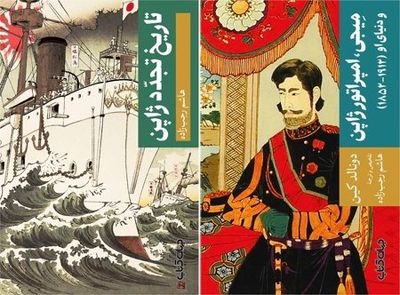A Persian translation of American-born Japanese scholar Donald Keene’s “Emperor of Japan: Meiji and His World, 1852-1912” by Hashem Rajabzadeh is one of the books.
The publishers have also released “History of Modernity in Japan”, which has been authored by Rajabzadeh, a scholar who teaches Persian language and literature at several universities in Japan.
“When Emperor Meiji began his rule in 1867, Japan was a splintered empire, dominated by the shogun and the daimyos, who ruled over the country’s more than 250 decentralized domains, and who were mainly cut off from the outside world, and committed to the traditions of the past. Before long, the shogun surrendered to the emperor, a new constitution was adopted, and Japan emerged as a modern, industrialized state,” a synopsis of “Emperor of Japan: Meiji and His World” reads.
“History of Modernity in Japan” also centers on the history of modernity in Japan during the period when the country opened its doors to the world and makes the traditional society familiar with the West.
Source: Tehran Times

